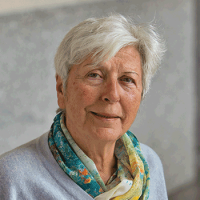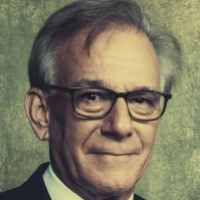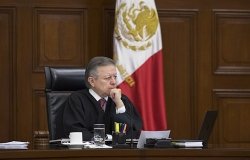Book Launch: "A Tale of Four Worlds: The Arab Region After the Uprisings"
In this book launch event, authors David and Marina Ottaway discuss their new book, A Tale of Four Worlds: The Arab Region After the Uprisings.
Overview
First came the disintegration of the Ottoman Empire following World War I; then, in the 1950s and ’60s, the Nasser-inspired wave of Arab nationalism and socialism. The Arab world’s third great political cataclysm of the past 100 years—the 2011 uprisings—has also brought permanent changes, but not as its activists had hoped.
Their consequences have differed greatly from area to area, splintering the Arab region into four different worlds. The Levant states have disintegrated, possibly irreversibly. The Gulf monarchies have embarked on far-reaching plans of economic and social change to stave off discontent. Egypt has retreated into military authoritarianism and a war on Islamists, threatening its future stability. Only the Maghreb countries, which have started integrating Islamists into their political systems, offer some hope for progress toward democracy.
Marina and David Ottaway have brought together fifty years of experience observing the Arab world, and a wealth of first-hand information gathered from living and travelling extensively in the region. A Tale of Four Worlds is an indispensable analysis of the profound upheavals that have shaken—and continue to transform—Arab and global politics.
Selected Quotes
David Ignatius, Opinion Writer, The Washington Post
“This book itself is really commendable. It’s like David’s journalism, [and] Maria’s academic work. It’s very careful. It doesn’t look for easy headlines. In fact, a lot of the value of this book is to me that it deflates those easy assessments of the Arab Spring that followed the events of the last decade.”
“People have been saying, since the time I began covering the Middle East in 1980, that these states were so fragile. You know, it was typical to say: ‘These are just tribes with flags. These were lines drawn in the sand by the Sykes-Picot Agreement. These are not real states. They’ll never last.’ And yet they do. Decade after decade, there’s a place called Iraq, there’s a place called Syria, there’s a place called Lebanon, there’s a place called Jordan. And these were all thought to be so fragile. They would be blown away like those lines drawn in the sand.”
Marina Ottaway, Middle East Fellow, The Wilson Center
“There was a great enthusiasm about these new revolutions, then everybody talked about revolutions that failed, and that led to the conclusion that nothing has changed. Nothing could be more wrong. A lot of things have changed in the Middle East. Different things have changed in different parts of the region, but there is one common thread all across: Nowhere, governments are taking their citizens for granted, the way they did before the Arab Uprising.”
“We don’t have the capacity to predict where these problems, where these outbursts, [will] take place. The US Government has been financing projects through American University to come up with indicators of instability, indicators of probable…crisis, and they never get anywhere. They are entirely unpredictable. They point to conditions, but they do not point to what actually, you know, the mechanism that actually triggers something.”
“[Mohammad Bin Salman is] not an admirable person by any stretch of the imagination. I think he’s playing an important historical role, and that does not make him good…. But I think he’s creating changes in Saudi Arabia that were necessary, and, in my opinion, are going to be irreversible. They are not going to put the lid back on the way it was on before. I think there is this greater sense of openness in the society. Entertainment seems to be a trivial thing, but it’s not in a country like Saudi Arabia…. I think is a permanent change. Is he the one that’s going to bring the country into a brave new world? I’m not sure. I’m not even sure he’s going to survive his father’s death in terms of the politics of the royal family. I mean, this is all up in the air. But I think he is playing an important historical role at this point.”
David Ottaway, Middle East Fellow, The Wilson Center
“Another really interesting outcome of the uprisings is that all eight Arab monarchies survived. Not only have they survived, most of them have become more active in building a state.”
“Saudi society is really changing…. You’ve got more women graduating than men. Women are sort of the major agent of change in my mind in what’s going on in Saudi Arabia.”
“There’s so much going on inside Arab countries that they have to worry about. Whether it’s getting enough bread to survive, or dealing with the chaos that’s going on next door, or even in their own countries. The Palestinian issue has faded as a rallying cause.”
Speakers
Hosted By

Middle East Program
The Wilson Center’s Middle East Program serves as a crucial resource for the policymaking community and beyond, providing analyses and research that helps inform US foreign policymaking, stimulates public debate, and expands knowledge about issues in the wider Middle East and North Africa (MENA) region. Read more
Thank you for your interest in this event. Please send any feedback or questions to our Events staff.












